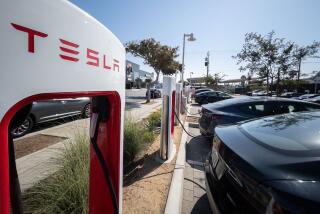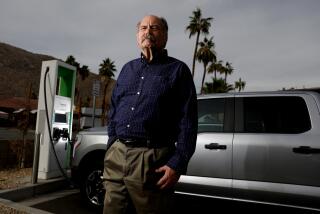Curbs on Buy Here, Pay Here
You want a car, but you can’t afford the price or the payment terms offered by regular used-car dealers. Then you find someone who’s ready, willing and able to bargain: A so-called Buy Here, Pay Here dealer who will let you finance the purchase price. Sure, the rates are high, as is the chance that you will miss a payment and the vehicle will be repossessed, but those are the breaks, right? Why should the government step in and police these kinds of deals?
Generally, it’s best to leave private transactions like these to the market. But not always. When a dealer becomes in essence a predatory lender who makes a living off customers’ desperation, and pushes a business model that not only fleeces the customer but leaves the rest of us to pick up the pieces, modest regulation may be in order.
That’s the case with this relatively new breed of car dealers, as chronicled last year by The Times’ Ken Bensinger. Customers appear to be targeted, and rates set, with default and repossession in mind rather than an actual successful sale; consider, for example, the fact that a quarter to a third of all “sales” result in default and repossession. Compare that with the 2.33% default rate for subprime lenders who are trying to reach the same class of customers.
Buy Here, Pay Here dealers often require buyers to come in to make payments in person, and then repossess the car on the spot if the payment is late. The vehicle may then be resold numerous times. Meanwhile, a buyer who shelled out the down payment for the car in order to keep a job and stay off the public dole instead falls out of the economy and into the unemployment line.
State Sen. Ted Lieu (D-Torrance) has a bill that would appropriately recognize that such companies are lenders at least as much as they are car dealers by requiring them to get lenders’ licenses, subjecting them to oversight. The bill would also cap interest rates at 17% above the federal funds rate in effect at the time, and would give buyers an 11-day grace period beyond the payment due date to pay without having their cars repossessed.
It would be difficult to surgically separate every predatory Buy Here, Pay Here dealer from those that offer a fair deal to customers in tough straits, but Lieu’s SB 956 comes close. It would recognize, and help remedy, the kind of abusive tactics practiced until recent legislation by the irresponsible segment of the payday loan industry. It is a worthy bill that deserves to move out of committee Monday and to the governor. Further help comes in the form of AB 1447, offered by Assemblyman Mike Feuer (D-Los Angeles). Feuer’s bill would bar Buy Here, Pay Here dealers from mandating that payments be made in person. It would also require sellers to notify buyers if their cars are equipped with remote-activated shutdown devices (to make the car easier to repossess) that could leave drivers stranded. And it would require dealers to provide minimal warranties — a mere 30 days or 1,000 miles. Feuer’s bill, too, deserves passage. Both bills target abuses without unduly restricting services that legitimate dealers offer or that customers need.
More to Read
A cure for the common opinion
Get thought-provoking perspectives with our weekly newsletter.
You may occasionally receive promotional content from the Los Angeles Times.






